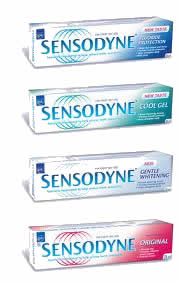DOES ERADICATION OF HELICOBACTER PYLORI REDUCE HYPERGASTRINEMIA DURING LONG TERM THERAPY WITH PROTON PUMPS INHIBITORS
Abstract
ABSTRACT
Objectives: To evaluate the effect of Hp eradication therapy on blood gastrin levels in
long-term PPI users, since proton pump inhibitors (PP1s) and Helicobacter pylori (Hp)
are major causes of hypergastrinemia.
Design: A prospective study.
Subjects: Twenty seven Hp (+) patients enrolled in the study. Twenty were given
eradication treatment (ET group), and the rest were given symptomatic treatment (ST
group). Those who remained Hp (+) after eradication therapy were also added into
the ST group. Lansoprazol 30 mg/day was given to both groups for three months
thereafter.
Results: Fasting and non-fasting blood gastrin levels (FGL and NFGL) were measured
initially and one month and four months after treatment. At the end of 4th month,
FGL was significantly higher than both initial and 4th month level (p<0.01) in the ST
group. NFGL in this group did not change significantly (p>0.05) after eradication
therapy. In the ET group, FGL was significantly higher in the fourth month than the
first month (p<0.001) and than the initial level (p<0.05). NFGL was higher, but not
statistically in the fourth month than in the first month (p>0.05) and significantly lower
than the initial level (p< 0.05) in this group.
Conclusion: We suggest that testing for Hp positivity and treating it if detected would
be an appropriate approach to avoid hypergastrinemia, especially incandidate patients
for long term PPI treatment.
Objectives: To evaluate the effect of Hp eradication therapy on blood gastrin levels in
long-term PPI users, since proton pump inhibitors (PP1s) and Helicobacter pylori (Hp)
are major causes of hypergastrinemia.
Design: A prospective study.
Subjects: Twenty seven Hp (+) patients enrolled in the study. Twenty were given
eradication treatment (ET group), and the rest were given symptomatic treatment (ST
group). Those who remained Hp (+) after eradication therapy were also added into
the ST group. Lansoprazol 30 mg/day was given to both groups for three months
thereafter.
Results: Fasting and non-fasting blood gastrin levels (FGL and NFGL) were measured
initially and one month and four months after treatment. At the end of 4th month,
FGL was significantly higher than both initial and 4th month level (p<0.01) in the ST
group. NFGL in this group did not change significantly (p>0.05) after eradication
therapy. In the ET group, FGL was significantly higher in the fourth month than the
first month (p<0.001) and than the initial level (p<0.05). NFGL was higher, but not
statistically in the fourth month than in the first month (p>0.05) and significantly lower
than the initial level (p< 0.05) in this group.
Conclusion: We suggest that testing for Hp positivity and treating it if detected would
be an appropriate approach to avoid hypergastrinemia, especially incandidate patients
for long term PPI treatment.
Refbacks
- There are currently no refbacks.


